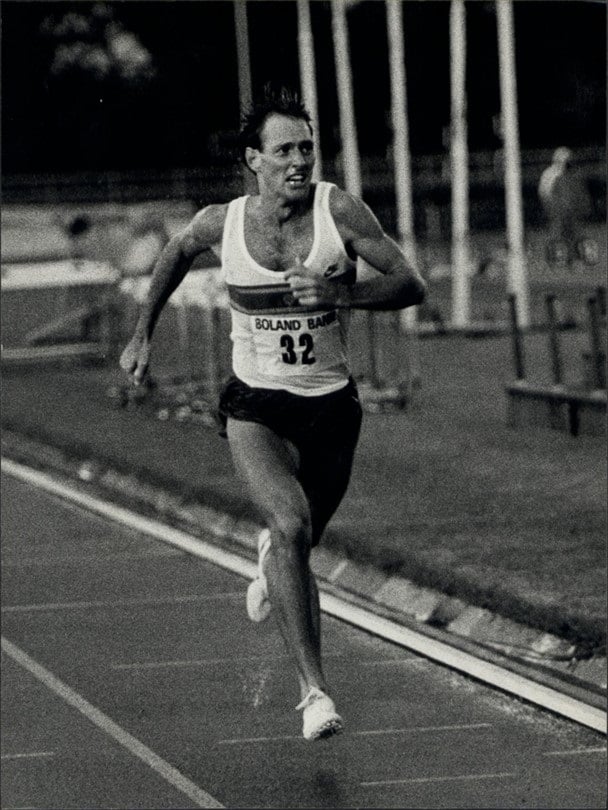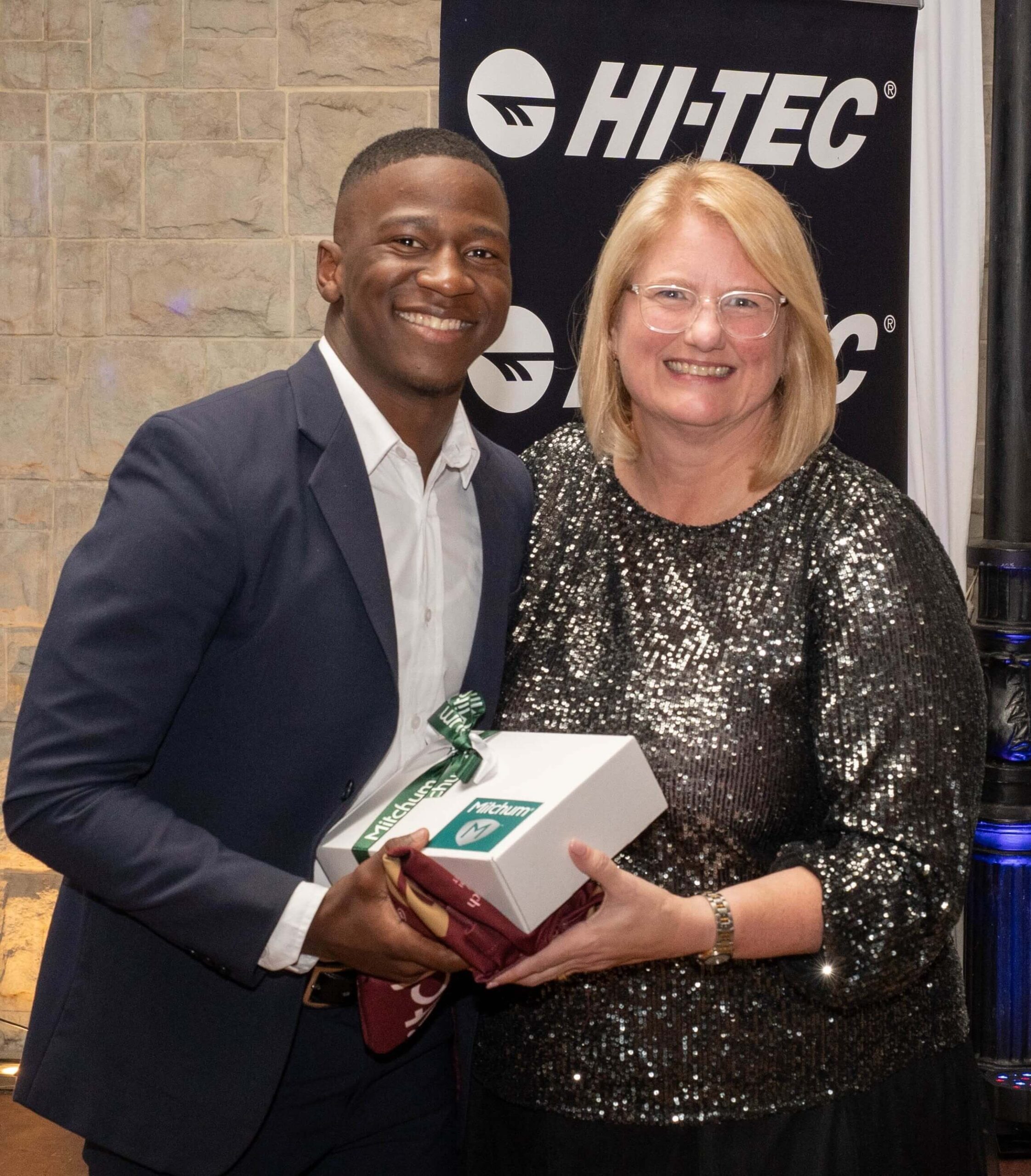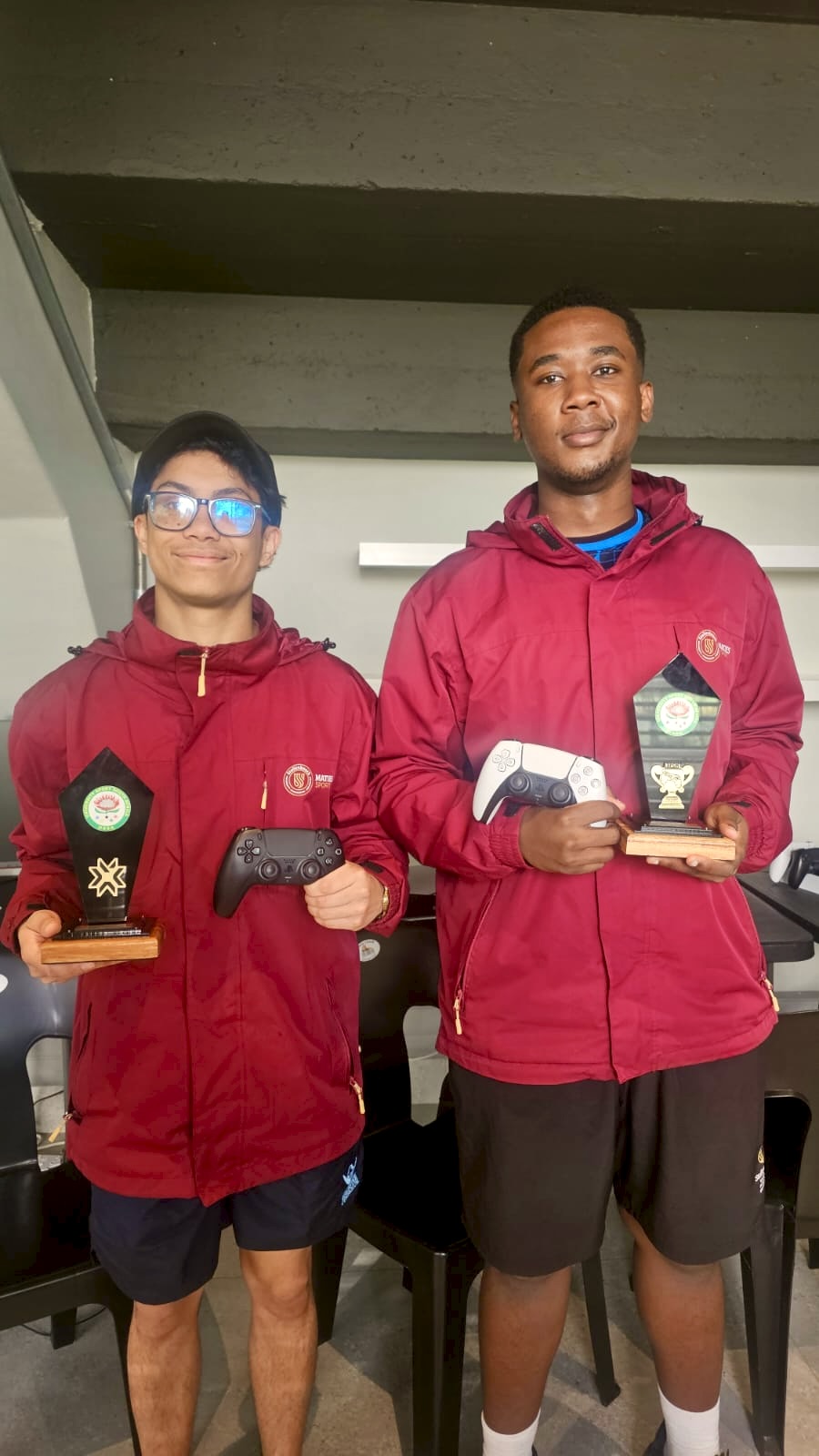By Leah Falcon
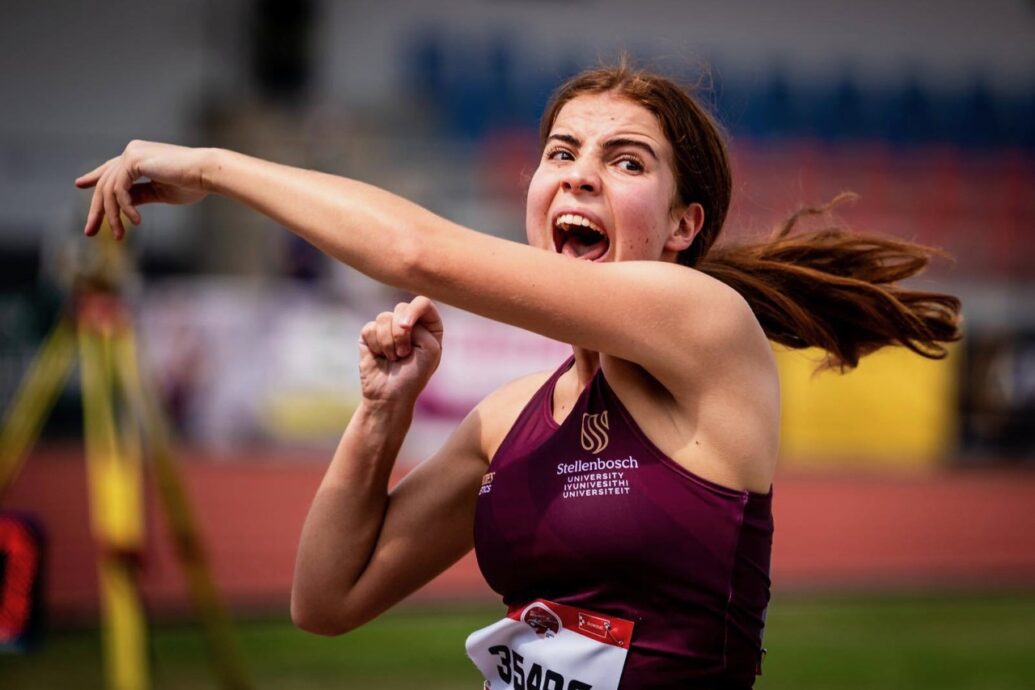
Freshly back from competing in the World Para Athletics Championship in New Delhi and with a gold medal in tow, Stellenbosch University’s own Simoné Kruger was interviewed by Die Matie about her most recent achievements, studies and life.
Kruger’s gold medal was for the Women’s F38 Discus event in which she achieved the Herculean throw of 37,39 meters. She was competing against her world record of 38,82 meters which she set at the 2024 World Para Athletics Championships in Japan. However, Kruger is no stranger to holding a world record. Her first world record was set at the sprightly age of 14 in Dubai at the 2019 World Para Athletics Championships. Since then, her dominance has endured through four World Championships and two Paralympics. Kruger is placed in the F38 class because she was born with cerebral palsy. The classification F38 relates to the event – F, representing field – and the type of impairment – 38 relating to coordination impairment.
Kruger’s long history with athletics began when she was about eight years old when her grandfather took her older sister to try out shot put. As a true younger sister, Kruger says, “I didn’t want to feel left out, so I started with her.” The two sisters added discus to their repertoire two years later. “My sister was the person who inspired me,” says Kruger and although her sister no longer competes, she says that her sister has and always will be her biggest supporter. “If I had a sister who went overseas this much and I didn’t have a chance to, I personally would feel really jealous. But I have an amazing sister. […] Even though she doesn’t get the chance to do all this stuff, she supports me even more. I couldn’t ask for a better family to support my career.” With her father as her coach and her mother handling the admin, Kruger’s family plays a huge role in her life.
While managing to stay on top of university work is comparable to a mission to Mars for most of us, breaking world records for six years straight at the same time places Kruger on Pluto. Kruger acknowledges, “I don’t always balance my time well enough […] Sometimes sports take priority over academics and sometimes academics take priority over sports.” However, she views this dilemma very pragmatically as “it’s a really difficult balance […]. There are only 24 hours in the day and we have to use it wisely.”
The challenges that Kruger faces are not limited to the double life of student-olympic-athlete. She explains that “there are always technical things, sporting things, health problems like sicknesses that have always gotten in the way”. However, nothing has ever stopped her from competing internationally. While Kruger was competing in New Delhi, she faced various obstacles such as a sore throat, body fatigue and fierce competition. Yet, she still managed to clinch the gold medal. Her persevering approach comes to the fore again when she explains, “There are always challenges and there will always be challenges. It is just how we stand up to the challenge.” In comparison, missing an 08:00 lecture because of the early wakeup seems a meagre excuse.
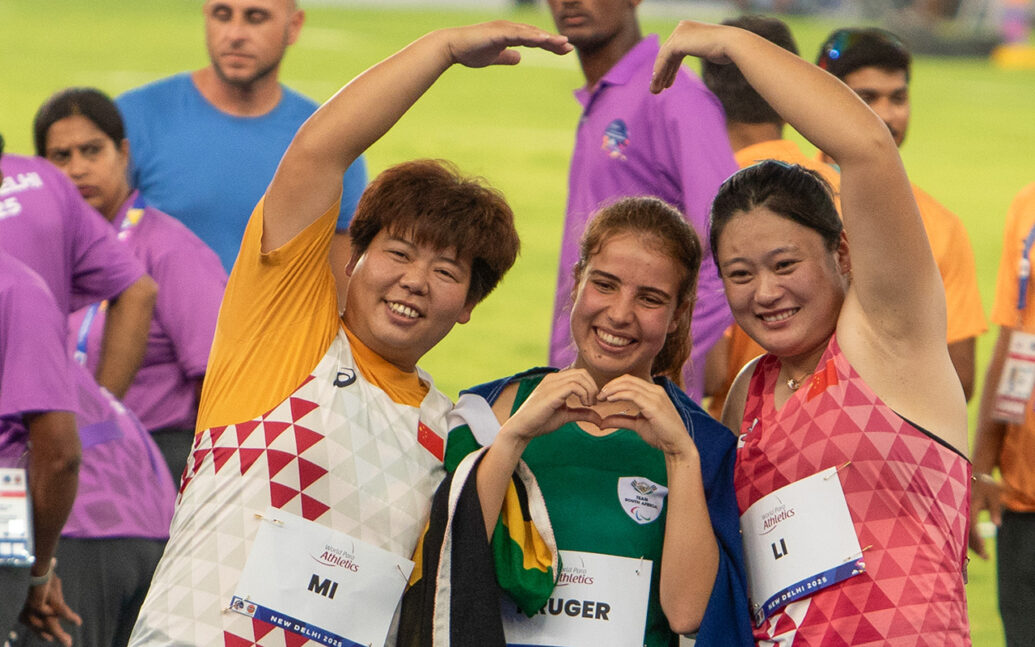
Para-sports continue to face challenges and stigmas in the sporting world. “People tend to think that it is not as important, which is really not the case,” Kruger says, “Look at the publicity that the able-bodied Worlds got versus what we got just in terms of streaming services, for example Super Sport. It is heartbreaking to see that.” Kruger hopes to see a change in this in the future, with both sports receiving equal rights and equal support.
Kruger has her eyes set on competing at the next World Champions and Paralympics. Maties students should have their eyes set on Kruger as she is sure to bring the gold to Maties’ maroon again soon.

